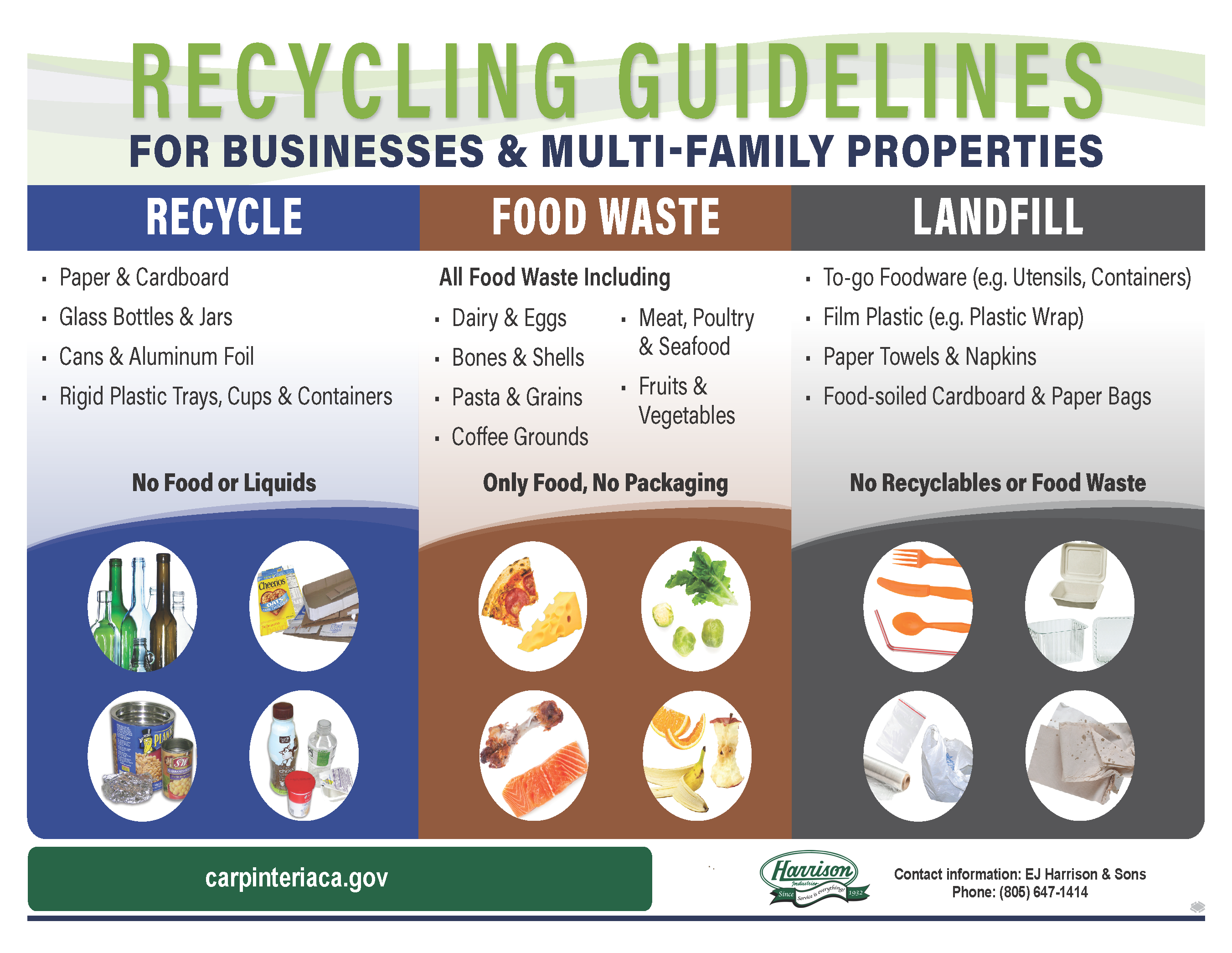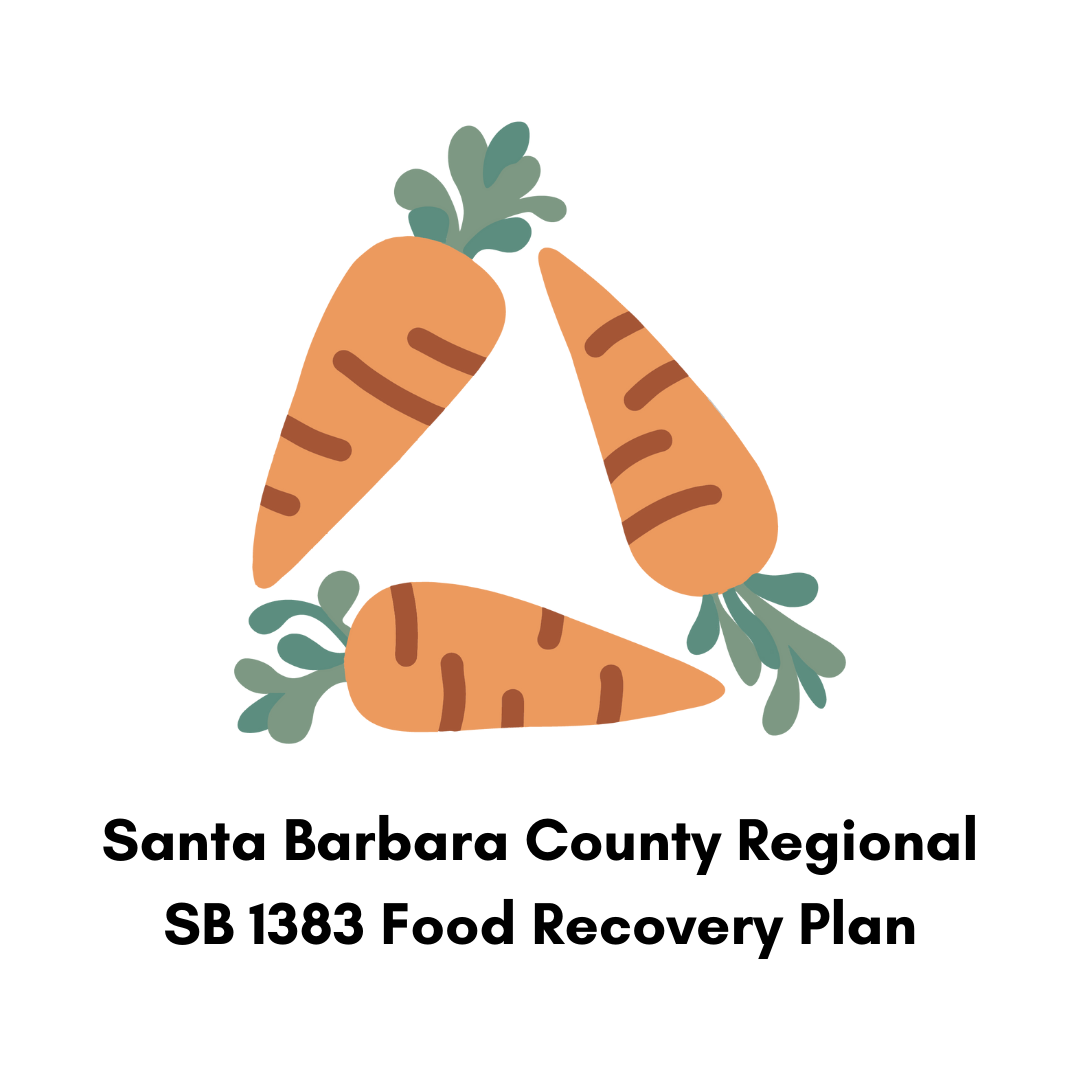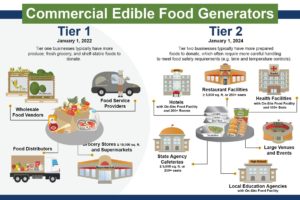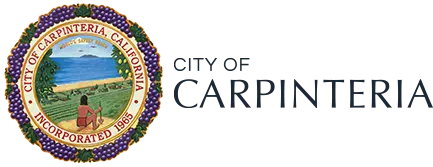Carpinteria businesses can find resources and materials relating to guidelines found within the City’s Solid Waste and Watershed Management Programs. For more general business inquiries, please visit Carpinteria’s Business webpage.
If you have additional questions, please contact sustainability@carpinteriaca.gov

Organics Waste Recycling
California Senate Bill (SB) 1383 is aimed at reducing methane emissions through the increased recycling of organic waste. The regulations require a 75% reduction by 2025 by requiring all residents, businesses, and multi-family properties to recycle all organic waste, including food waste, paper, cardboard, yard waste. Additionally, SB 1383 mandates that 20% of currently disposed edible food be recovered for human consumption by 2025.
To get more education on this information, check out the following link by clicking the SB 1383 Education and Outreach and watching CalRecycle’s SB 1383 video – California’s Short-Lived Climate Pollutant Reduction Strategy
Getting Started
Know what’s required: New state legislation requires all businesses, multi-family properties and residents to participate in a recycling and organics recycling collection program*. Assembly Bill (AB) 341, AB 1826 also apply to businesses and multi-family properties. These requirements are codified via amendments to Carpinteria Municipal Code Chapter 8.08.800.
Residential Customers: Bag food scraps and food-soiled paper and dispose of it in your yard waste container. Items can be bagged in paper (preferred) or plastic. Food waste posters are available in English and Espanol.
Commercial and Multi-Family Customers: Businesses may also choose to self-haul or back-haul their organic waste to a processing facility if they meet specific tracking requirements. If your business self-hauls or backhauls organic waste, submit a Third Party Reporting Form (required annually) to provide documentation of self-hauling or back-hauling.
Contact the City’s waste hauler: Determine what service levels are best for your property by calling Donald Sealund with EJ Harrison & Sons at (805) 647-1414 ext. 4318. Eligible commercial customers can apply for a Waiver.
Food Recovery
SB 1383 Edible Food Recovery
Senate Bill 1383 (SB 1383) is a bill designed to keep organics out of the landfill. Part of this bill includes reducing edible food that goes to waste, and feeding hungry people. SB 1383 states that edible food waste generators must donate surplus food to food recovery organizations. Edible food waste generators are separated into two tiers, Tier 1 and Tier 2. Tier 1 generators must donate starting January 1, 2022, and Tier 2 generators must donate beginning January 1, 2024. The City of Carpinteria has partnered with other local agencies to implement the Santa Barbara County Regional SB 1383 Food Recovery Plan.


There are two requirements for edible food donors:
Establishing Contracts and Written Agreements with Food Recovery Organizations and Services
To ensure that the maximum amount of edible food is recovered, the regulations require that mandated food donors establish contracts or written agreements with food recovery organizations and services. Food recovery organizations and services vary in the amount and types of food they can receive, so mandated food donors may need to establish contracts or written agreements with multiple food recovery organizations and services to be in compliance.
Recordkeeping
The law requires mandated food donors to maintain records on-site of their food donation activities. Jurisdictions will monitor compliance by requesting the following types of records:
• Contract or written agreement for food recovery organizations and services
• Schedules for food donation deliveries or collections
• Quantity of food donated in pounds per month
• Types of food each food recovery organization will receive or collect
We want to help! If you’d like to start donating food from your business, please email erinm@carpinteriaca.gov
Food Recovery Resources
Food Recovery Tools Packet (PDF)
Food Recovery Packet 2023 (PDF)
Food Recovery Schedule Template (PDF)
Food Recovery Agreement Template (PDF)
Food Recovery Donation Tracking Template (PDF)
Online Recordkeeping System FAQs

Free Tools and Resources
For Businesses
- Request Indoor Food Waste Bins: Request free indoor bins to help make separating food waste from other materials a breeze. ONLY for businesses diverting food waste.
- Request Container Stickers: Order free stickers and place them on new and existing indoor waste and recycling containers.
- Customizable Employee Memo: Use a customizable employee memo to help notify and remind employees about business recycling practices.
- Flyers for Employees: Remind employees about recycling practices with a helpful diagram.
- Recycling Guideline Posters: Help employees understand what bins should be used for trash, organics, and recyclable materials by posting recycling signs in common areas or near disposal sites. Available in English and Espanol.
Annual Household Hazardous Waste Collection:
The City operates a once-a-year free hazardous waste collection event for the residents of Carpinteria. For small quantity waste generators, you must make an appointment to dispose of waste by emailing sustainability@carpinteriaca.gov. The Annual Household Hazardous Waste Collection event is held at City Hall and operated as a drive through drop off in the City’s Public Works Yard. Most items are accepted at this yearly event. The following items are NOT accepted: biohazards, nuclear waste, explosives, and tires.
The Annual Household Hazardous Waste Collection event is conducted on the second Saturday in April between the times of 9:00 a.m. and 1:00 p.m.
For hazardous waste disposal the rest of the year, you can look up approved hazardous waste haulers at Less is More, or find information on recycling specific items here.
The City of Carpinteria is dedicated to reducing single-use plastics within the community and updated Chapter 8.50 of the Municipal Code, concerning the regulation of polystyrene and single-use plastic items. This update includes measures that prohibit the distribution and sale of polystyrene products, regulates disposable foodware, and regulates foil and latex balloons.
All measures under this new ordinance will be in effect starting February 22, 2024, with enforcement starting in July 2024, unless otherwise exempted. You can read the ordinance here.
Refuse Single-Use Carpinteria Guide (English / Español)
Foodware Purchasing Guide
Ordinance Update Flyer (English / Español)
Recycling Guidelines and Business Flyers
If you would like these resources printed, please contact sustainability@carpinteriaca.gov
Additional Resources
Visit the Refuse Single-Use Carpinteria webpage for information about these new regulations and additional materials provided for you.
Development projects must prevent sediment and other construction related pollutants from entering the storm drain, as detailed in Carpinteria Municipal Code Chapter 8.10, Watershed Management. The City regulates discharges from construction activities through permits issued by the Community Development Department and Public Works. This includes development permits and engineering/grading permits.
Permits that include earthwork require submittal of an Erosion and Sediment Control Plan, or in the case where a project is also subject to General Permit for Discharges of Storm Water Associated with Construction Activity (Construction General Permit, 99-08-DWQ), a Storm Water Pollution Prevention Plan or SWPPP can be submitted instead.
The Erosion and Sediment Control Plan (or SWPPP) addresses pollution prevention through the use of Best Management Practices to control erosion and non-stormwater discharges such as fueling, saw cutting, placing concrete, painting, etc. BMPs appropriate for the Erosion and Sediment Control Plan (or SWPPP) can be selected from the resources provided on the Construction and Development webpage.
Animal Care and Handling Facilities Guide to BMPs (English)
Animal Care and Handling Facilities Guide to BMPs (Spanish)
Automotive Guide to BMPs (English)
Automotive Guide to BMPs (Spanish)
Construction Industry’s Guide to BMPs (English)
Construction Industry’s Guide to BMPs (Spanish)
Gardeners – Landscapers Guide to BMPs (English)
Gardeners – Landscapers Guide to BMPs (Spanish)
Homeowners Guide to BMPs (English)
Homeowners Guide to BMPs (Spanish)
Mobile Cleaners Guide to BMPs (English)
Mobile Cleaners Guide to BMPs (Spanish)
Mobile Pet Groomer and Stylist Guide to BMPs (English and Spanish)
Multi-Unit Residential Dwellings Guide to BMPs (English)
Multi-Unit Residential Dwellings Guide to BMPs (Spanish)
Pet Owners Guide to BMPs (English and Spanish)
Restaurant Guides to BMPs (English)
Restaurant Guides to BMPs (Spanish)
Special Events Guide to BMPs (English)
Special Events Guide to BMPs (Spanish)

 © 2026 City of Carpinteria. All Rights Reserved.
© 2026 City of Carpinteria. All Rights Reserved.